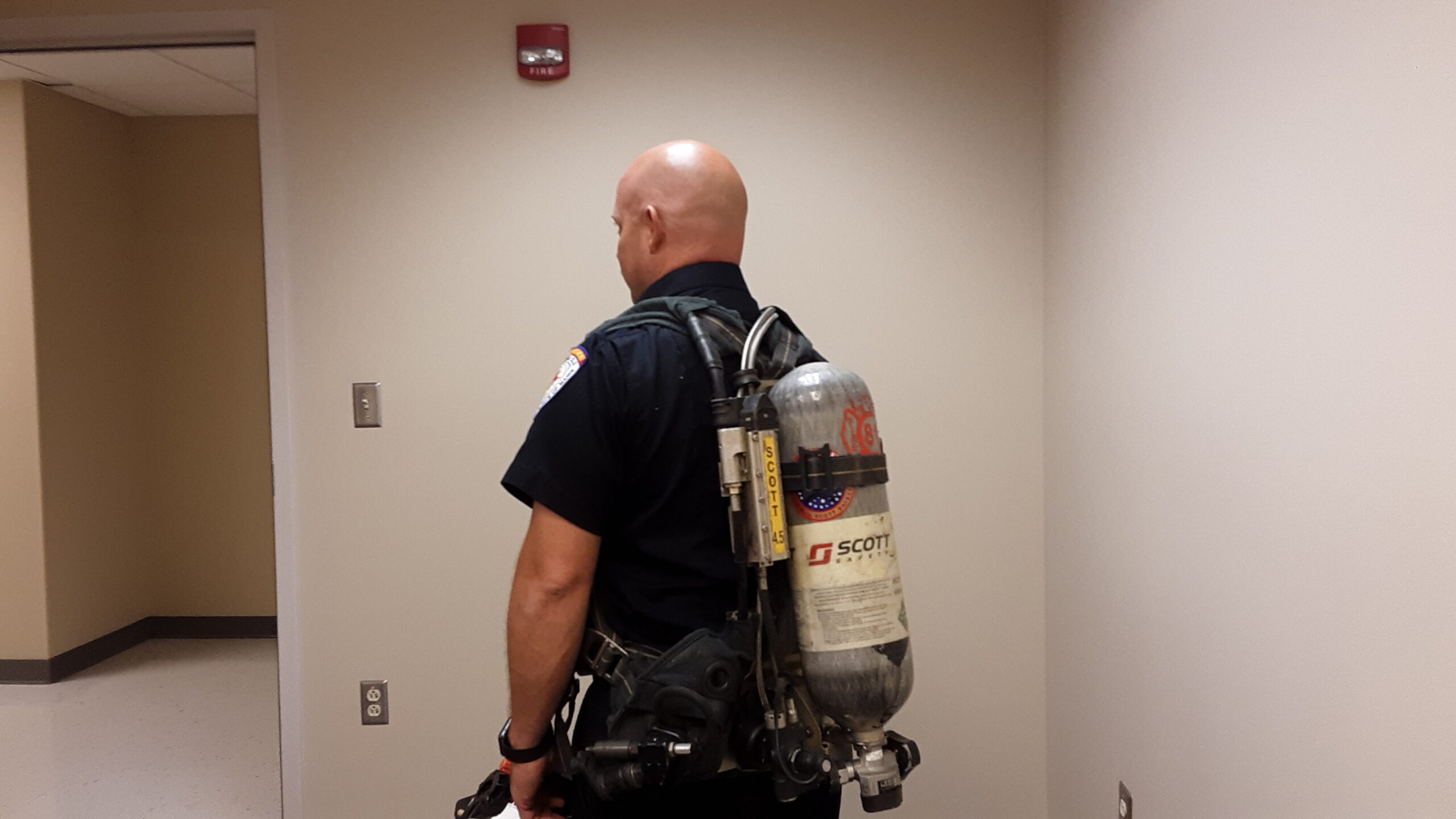
PRESQUE ISLE, Maine — The Presque Isle Fire Department recently won a $209,262 federal Assistance to Firefighters Grant to replace much of the department’s current supply of air packs.
Although the 33 out of 35 air packs that qualify for grant funding and replacement are still considered safe to use on the job according to National Fire Protection Association standards, the grant funding will allow the department to buy new packs and create more room in the capital improvement plan for other major expenses.
“Over time, as the packs age we start to see more issues with the high pressure regulators and other parts, which adds to the yearly maintenance and inspection costs,” said Fire Chief Darrell White. “We thought that now would be a good time to replace them, before we run into more issues. The packs usually will last around 15 to 18 years.”
Each pack will come with two air bottles and the department will also receive 50 face masks, which equals to one mask per firefighter, and 66 air bottles. The packs give each firefighter 30 minutes of air time while inside a burning home and will come with a microphone system so that crew members outside can communicate with the firefighter.
Aside from the new air packs being lighter and more comfortable for firefighters, White noted that it is also important for his department to stick with its chosen manufacturer, 3M Scott, because other departments in central Aroostook also use that brand.
“It’s important that our air packs are compatible with other departments so that if we’re assisting them on a call we could plug in our tanks into their packs if need be,” White said.
With the grant funding, the City of Presque Isle will only be required to cover five percent — or $10,463 — of the cost to purchase the air packs, which White said lifts the burden from taxpayers. He expects that the department will receive all 33 air packs by the end of this year.
The cost savings will allow the fire department to put more of its own funds aside for other equipment needs such as a cardiac monitor for its ambulance, which costs an average of $32,000, as well as other emergency response-related expenses. For now the department has decided not to submit grant applications for funding for a new fire engine/tanker truck, as they have been repeatedly rejected by the Assistance to Firefighters Grant program, although administrators will explore other funding options.
“We try to find ways to fund these expenses while reducing the burden on the city or local taxpayers,” White said.







